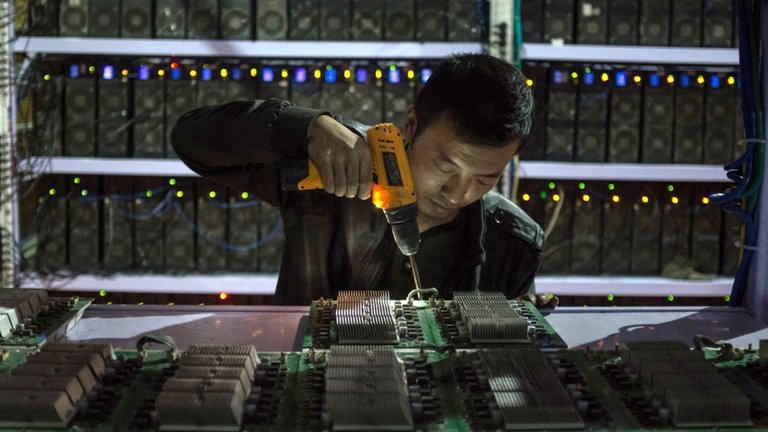The Chinese government plans to eliminate the crypto currency mining industry in the coming months as reported by Bloomberg and CnLedger. Analysts said the ban on minerals in China could lead to a rise in the price of the bacon because of the low supply.
According to CnLedger, it is unlikely that the Chinese government will impose a ban on digital currency and bitcoin mining in the short term, because it is difficult to do so through strict regulations and policies. But the government has taken a cooperative approach with local power grid operators to provide a more challenging system for the metal. While the Chinese government is mainly trying to get the minerals out of the domestic industry. CnLedger reported:

"The Chinese People's Assembly has not held a closed meeting, nor is it required to close mining communities before the deadline. However, regulatory bodies are phasing out preferential policies that were previously on electricity, taxes and land charges for some mining facilities. Organizers are also asking local administrations to report on the current situation of the domestically operated mining companies and to direct them to exit in an orderly manner. Through various measures in terms of electricity, land, taxes and environmental protection "
In an interview with South Korea's Morning Post newspaper, one of the metalware workers, who asked not to be identified because of the sensitivity of the subject, disclosed corruption in the Chinese mining sector and that the metal was paying local network operators for allowing them to dig digital currency. As such, the miners have begun exploring other potential areas since November of 2017 to move their crypto currency mining projects. Southwest China has become a popular destination for the metal because of low electricity prices, while areas such as Norway and Chile are ideal for these centers because they have the cheapest electricity and cold weather. Cui said earlier:
"Bribery has become common in the Chinese mining industry, as power suppliers have absolute control over their decision to restrict power supplies to some companies that do not comply with their demands"
Although analysts claim that the drop in supply of bitcoin due to the dismissal of bitcoin mining companies by the Chinese government could lead to higher prices, such a situation could not occur in the short term. If the two Chinese miners are forced by the government to abandon their workers and move elsewhere, they will simply go to better-off areas with cheaper resources such as Chile and Norway to continue mining operations. While the demand for bitcoin has been affected in the short term, it will not be significantly affected in the long term. In addition, the Chinese government's plan is to try to extract metal bitcoin from the domestic sector in the medium to long term through more stringent regulations and policies. Bitcoin and the digital currency market are likely to be affected by the campaign imposed by the government on digital coin mining in the next few months.

Thanks for the info...
you are welcome @rastalikelove
This will cause the fees to rise too right?